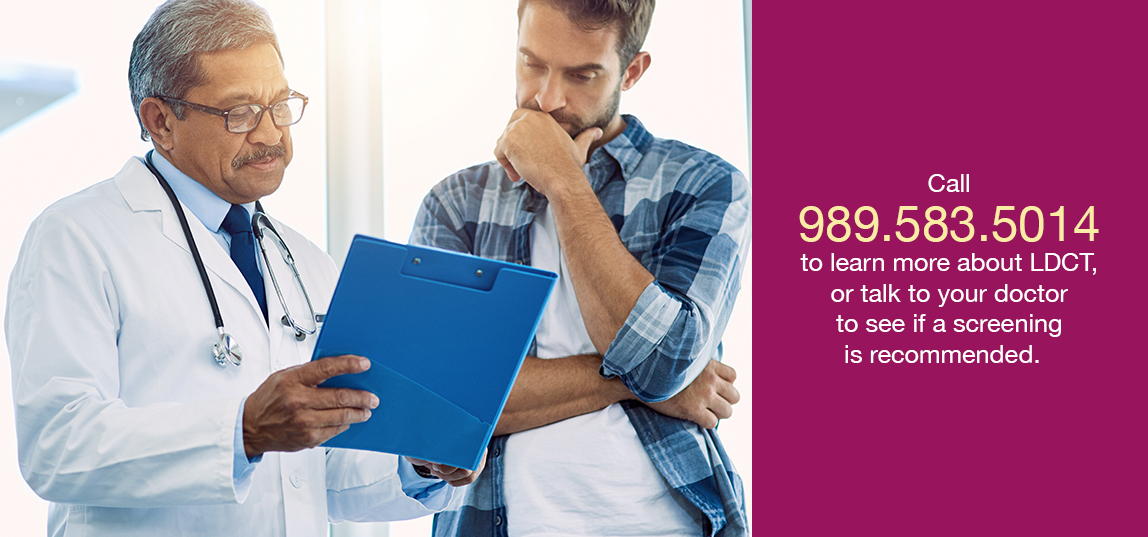Annual screening is important for lung cancer because symptoms don’t usually appear until the cancer is advanced. Screening with Low-Dose Computerized Tomography (LDCT) offers the best opportunity for early detection and treatment of this disease.
Who should get screened for lung cancer?
Annual LDCT screening is recommended if you are aged 50 to 77, are not experiencing any signs or symptoms of lung cancer AND fall into one of these groups:
- Are a current smoker or former smoker who has quit in the last 15 years
- Have a 20-pack-year smoking history (For example, one pack a day for 20 years or two packs a day for 10 years)
For patients who meet the above criteria, LDCT screening is covered by most insurance plans including Medicare.
Note: Lung screenings are not offered to patients who have pacemakers, require home oxygen, have metal rods in their spine, or have had a CT scan in the past year.
How do I schedule a lung screening exam?
Before scheduling, a counseling and shared decision-making discussion must occur with a physician or qualified non-physician practitioner. In addition, patients must have a written order from their physician before scheduling the lung screening exam.

If you do not have a physician, Find a Physician now.
Lung Cancer Screening: What to expect
Covenant Cancer Care Center uses Low-Dose Computerized Tomography (LDCT) to scan for lung cancer. This is an imaging procedure that uses specialized X-ray equipment to take pictures of your lungs. The procedure will expose you to low levels of radiation, enough to detect cancer but significantly less than a conventional chest CT scan.
The test is quick and painless and is performed without using X-ray dye or contrast (so no IV is necessary). Before the test, you will be asked to remove all metal (jewelry, clothes with zippers, etc.).
You will lie on your back on a table, which will move through a CT scanner shaped like a donut. The technologist will ask you to briefly hold your breath as the scans are taken (just for a few seconds).
Getting your results
If the scan shows no areas of concern, you’re done until next year’s screening. If the scan finds a nodule, mass, or other chest abnormality, your doctor may order a short-term follow-up CT scan, additional testing, or a biopsy. In some cases, follow-up care may include all three options.
Covenant HealthCare: A Designated Lung Cancer Screening Center.
The computerized tomography program at Covenant HealthCare is accredited by the American College of Radiology. We are also a Designated Lung Cancer Screening Center. This elite distinction recognizes facilities that have committed to practicing safe, effective, low-dose CT imaging for individuals at high risk for lung cancer.